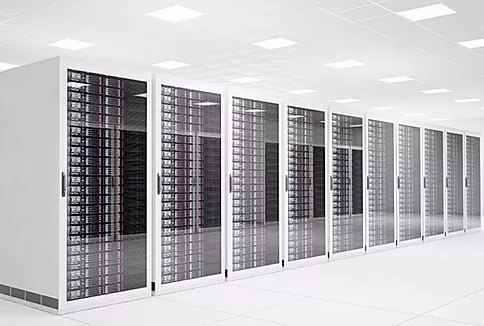It’s a fair question and the answer is not always clear to infrastructure managers, systems administrators, network engineers and other IT professionals that manage a company’s infrastructure: should my organization use dedicated servers in a data center instead of company owned equipment purchased on the typical three to five year refresh?
Like anything else that requires ample scrutiny, so does the case for using dedicated servers as an alternative to buying equipment. Consider the following when evaluating which direction to go.
Location: Data Center vs. Storage Closet

While businesses certainly differ in terms of industry, size, revenue and other attributes, one thing that is common among them is physical deployment of their hardware. I’m talking about a widespread practice at SMBs: stuffing switches, firewalls, servers, phone systems, networking gear and other electronics into small, dusty, improperly cooled and frequently unlocked closets or rooms with water-based fire protection (if any fire protection even exists).
These conditions can shorten the life expectancy of any piece of equipment or at least cause problems along the way. The bottom line is that hot, dusty and poorly ventilated areas that house electronics are nowhere near optimal operating conditions for equipment that so many businesses rely so heavily upon.
Enter the data center…a temperature controlled environment, clean-agent fire system, backup generator, commercial grade UPS systems, multiple internet providers, video camera surveillance and physical security controls. It’s quite a contrast. But in fairness, these types of facilities are specifically designed to house and protect a business’s computing resources and the data that lives there. A data center offers organizations piece of mind when it comes to reliability, security and longevity.
Capital Expense (Capex) vs. Operating Expense (Opex)
Spending thousands of dollars – or even tens of thousands, on new servers and related hardware can be a rude awakening for business owners that have reached a critical point in the life span of their infrastructure.
In some cases, it’s seriously problematic or may not be feasible. Seasonality, low margins, sluggish sales. You name it and there’s a thousand reasons why forking over a big chunk of capital for new computer equipment can be difficult or impossible.
On the other hand, the option for utilizing dedicated servers can be a more palatable approach. Instead of absorbing a significant capital expenditure for new equipment, a business owner can invest in a dedicated server or servers (depending on your business needs) that have a fixed monthly cost. Whether it’s a file server, email server, application server, database server or web server (that’s not a complete list but you get the point), “renting” equipment with predictable monthly recurring costs from a data center or cloud provider can make a lot of sense and keep the finance department smiling.
IT Dept – Traditional Role or Contributing to the Bottom Line?
IT departments are heavily relied upon when it comes to managing the company’s servers (and other equipment but right now we are just focused on servers). That means updating the operating system, patching vulnerabilities, ensuring all the correct 
Now let’s imagine being a business owner that could utilize his or her IT dept to help solve problems that contribute to generating revenue?
With the prevalence of private data centers, cloud computing, AI and other advancements in technology, a new opportunity has arisen for businesses to look at their IT department in a new light – not for break-fix and proactive purposes, but to be able to contribute to the bottom line.
It’s a novel idea and one that business owners can get behind. It shouldn’t be reserved for the Fortune 500. For example, instead of paying Bill to sit around and manage 5 servers, what if Bill was working on a way to streamline billing, reduce DSO by 10 days or create a mobile app for the business?
Leaving the break-fix, capex and less-than-desirable server closet behind can be a great option for today’s forward-thinking organizations.

